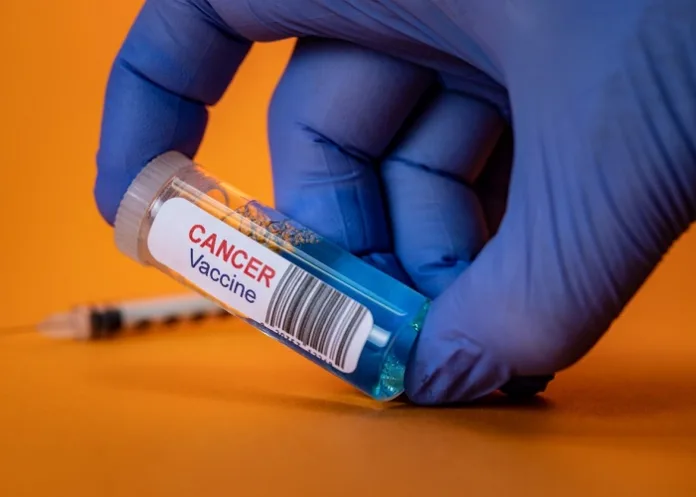Scientists say their cancer research has reached a turning point, with many predicting more vaccines will be out in five years – specifically those that shrink tumours and stop cancer from coming back – while those that prevent cancer are also likely to be on the horizon in the future.
Targets for these experimental treatments include breast and lung cancer, with gains reported this year for deadly skin cancer melanoma and pancreatic cancer.
“We’re getting something to work, and now we need to get it to work better,” said Dr James Gulley, who helps lead a centre at the National Cancer Institute that develops immune therapies, including cancer treatment vaccines.
More than ever, scientists understand how cancer hides from the body’s immune system, reports TIME.
Cancer vaccines, like other immunotherapies, boost the immune system to find and kill cancer cells, with some new ones using mRNA, which was developed for cancer but first used for Covid-19 vaccines.
Early cancer vaccine research faltered as cancer outwitted and outlasted patients’ weak immune systems, said Olja Finn, a vaccine researcher at the University of Pittsburgh School of Medicine, “but these failed trials actually taught us so much.”
As a result, she now focuses on patients with earlier disease since the experimental vaccines didn’t help with more advanced patients.
Her group is currently planning a vaccine study in women with a low-risk, non-invasive breast cancer called ductal carcinoma in situ.
More vaccines that prevent cancer may be ahead too.
Decades-old hepatitis B vaccines prevent liver cancer and HPV vaccines, introduced in 2006, prevent cervical cancer.
In Philadelphia, Dr Susan Domchek, director of the Basser Centre at Penn Medicine, is recruiting 28 healthy people with BRCA mutations for a vaccine test. Those mutations increase the risk of breast and ovarian cancer. The idea is to kill very early abnormal cells, before they cause problems. She likens it to periodically weeding a garden or erasing a whiteboard.
Others are developing vaccines to prevent cancer in people with precancerous lung nodules and other inherited conditions that raise cancer risk.
“Vaccines are probably the next big thing in the quest to reduce cancer deaths,” said Dr Steve Lipkin, a medical geneticist at New York’s Weill Cornell Medicine, who is leading one effort funded by the National Cancer Institute. “We’re dedicating our lives to that.”
People with the inherited condition Lynch syndrome have a 60% to 80% lifetime risk of developing cancer. Recruiting them for cancer vaccine trials has been remarkably easy, said Dr Eduardo Vilar-Sanchez of MD Anderson Cancer Centre in Houston, who is leading two government-funded studies on vaccines for Lynch-related cancers.
“Patients are jumping on this in a surprising and positive way,” he said.
Moderna and Merck are jointly developing a personalised mRNA vaccine for patients with melanoma, with a large study to begin this year. The vaccines are customised to each patient, based on the numerous mutations in their cancer tissue.
A vaccine personalised in this way can train the immune system to hunt for the cancer’s mutation fingerprint and kill those cells.
But these will be expensive.
“You basically have to make every vaccine from scratch. If this weren’t personalised, the vaccine could probably be made for pennies, just like the Covid vaccine,” said Dr Patrick Ott of Dana-Farber Cancer Institute in Boston.
Some of the vaccines under development are designed to work for many patients, not just a single patient. Tests are under way in early and advanced breast cancer, lung cancer and ovarian cancer. Some results may come as soon as next year.
See more from MedicalBrief archives:
How close are scientists in developing an mRNA cancer vaccine?
Amazon involved in new cancer vaccine clinical trial
Small personalised cancer vaccine clinical trial to expand following promising early results
Anti-cancer vaccine fight taken to another level

